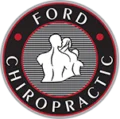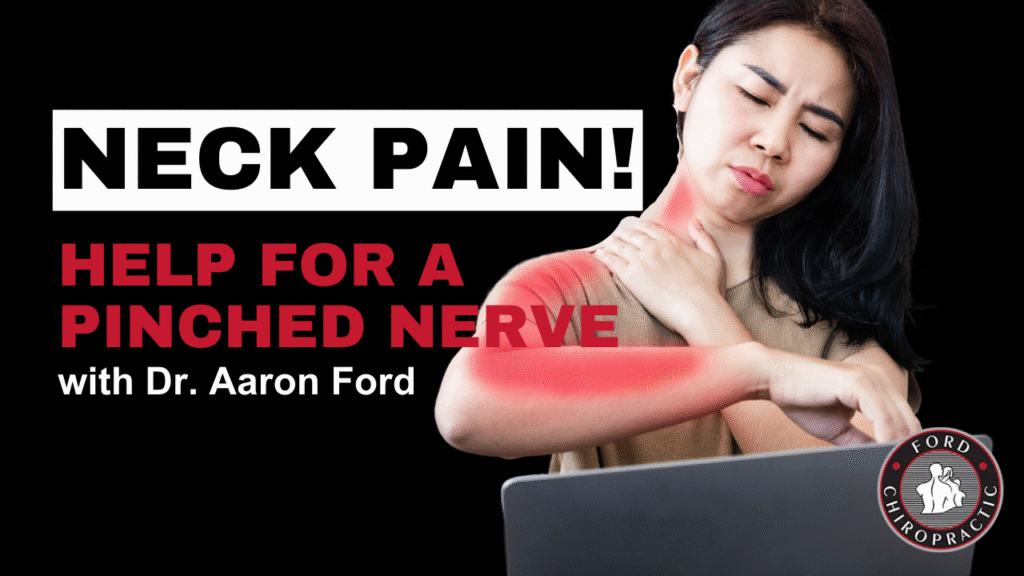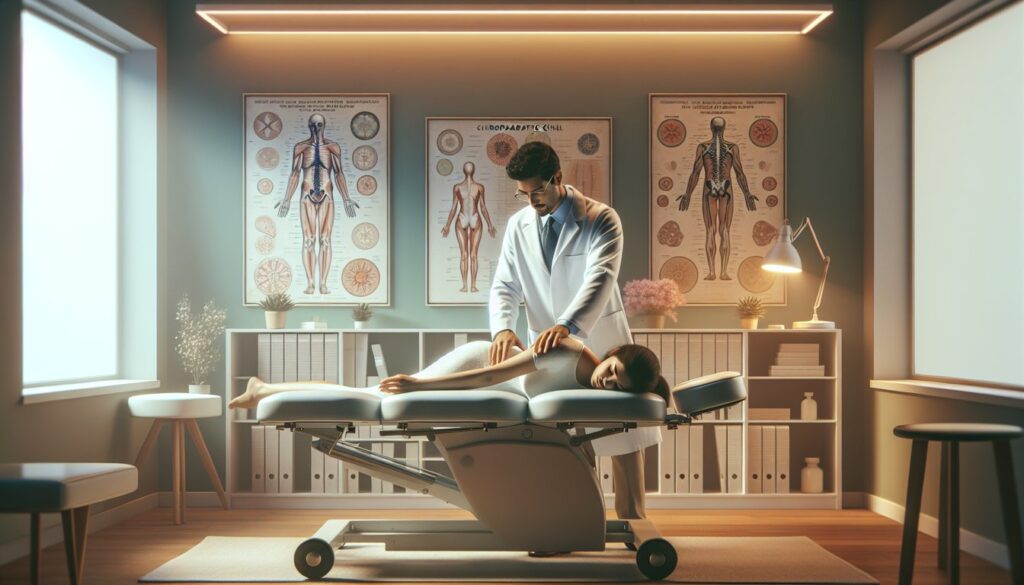Pinched Nerve Neck Pain: Understanding the Causes and Solutions
A pinched nerve occurs when a nerve is compressed or pressed by a bone or joint. This compression can disrupt the nerve’s normal function, leading to various symptoms such as shooting pain, decreased sensation, numbness, tingling, and muscle weakness. Pinched nerves can affect different parts of the body, including the neck, back, shoulder, arm, and leg. Let’s discuss a pinched nerve and understand some causes and solutions.
There are several common causes of pinched nerves. One of the main causes is weight and obesity. Excess weight can put pressure on the nerves, leading to compression and pain. This is especially true for individuals who carry excess weight in their midsection, as it can strain the lower back and lead to pinched nerves in the lumbar spine. It’s important for individuals who are overweight or obese to work towards a healthy weight to alleviate pressure on the nerves and reduce the risk of pinched nerves.
Another common cause of pinched nerves is rheumatoid arthritis. This autoimmune disease causes inflammation in the joints, which can lead to nerve compression. The inflamed joints can put pressure on nearby nerves, causing pain and discomfort. Traumatic injuries, such as falls or car accidents, can also result in pinched nerves. These injuries can cause misalignment of the bones or joints, leading to compression of the nerves. It’s important to seek medical attention after a traumatic injury to ensure that any potential nerve compression is addressed promptly.
Poor ergonomics can also contribute to the development of pinched nerves. Sleeping on your stomach with your head on one side all night long is a leading cause of a pinched nerve in the neck. Sitting or standing in an improper position for extended periods of time can put unnecessary pressure on the nerves. This is common in office workers who spend long hours at a desk without proper posture or ergonomics. It’s important to maintain good posture and take frequent breaks to stretch and relieve pressure on the nerves. Additionally, overuse injuries from repetitive motions or activities that strain the same muscles can result in pinched nerves. This is common in athletes or individuals who engage in repetitive tasks, such as typing or lifting heavy objects. Taking breaks and varying activities can help prevent the development of pinched nerves.
What is a Pinched Nerve?
A pinched nerve occurs when a nerve is compressed or pressed by a bone or joint. This compression can disrupt the nerve’s normal function, leading to various symptoms such as shooting pain, decreased sensation, numbness, tingling, and muscle weakness. Pinched nerves can affect different parts of the body, including the neck, back, shoulder, arm, and leg.
When a nerve is pinched, it can cause inflammation in the surrounding tissues. This inflammation can further aggravate the nerve, leading to increased pain and discomfort. It’s important to address a pinched nerve promptly to prevent further damage and alleviate symptoms. Ignoring a pinched nerve can lead to chronic pain and long-term complications.
How Chiropractic Care Alleviates Pinched Nerve Pain
Chiropractic care is an effective solution for alleviating pinched nerve pain. Chiropractors focus on realigning the body’s tissues, including bones, tendons, ligaments, cartilage, and muscles, to release pinched nerves. Through chiropractic adjustments, pressure on the nerves can be reduced, promoting natural healing and providing immediate relief. Chiropractic care offers a non-invasive and drug-free approach to addressing pinched nerves.
Chiropractors can develop personalized treatment plans based on the specific needs of each patient, ensuring that the underlying cause of the pinched nerve is addressed. This individualized approach allows for targeted treatment that addresses the root cause of the problem, rather than just managing the symptoms. By addressing the underlying cause, chiropractic care can provide long-term relief and prevent future episodes of pinched nerves.
For example, a study published in the Journal of Manipulative and Physiological Therapeutics found that chiropractic manipulation was effective in reducing pain and disability in patients with pinched nerves in the neck. The study compared chiropractic manipulation to physical therapy and medication and found that chiropractic care provided better outcomes. Chiropractic adjustments can also help improve range of motion and restore proper alignment, addressing the root cause of the pinched nerve.
Common Chiropractic Techniques for Pinched Nerves
In addition to chiropractic adjustments, there are other common chiropractic techniques for treating pinched nerves. Spinal adjustments involve controlled force to manipulate the spine and alleviate pressure on pinched nerves. This technique can be performed manually or with the use of specialized equipment. The goal of spinal adjustments is to restore proper alignment and relieve pressure on the nerves.
Spinal decompression is another technique that can be used to alleviate pinched nerve pain. This technique involves gentle stretching to relieve pressure and create space for the nerves to heal. Spinal decompression can be performed manually or with the use of specialized equipment, depending on the patient’s condition. It is a non-invasive and drug-free option for relieving pinched nerve pain.
Mobilization techniques, such as manual therapy, can also be used to improve joint mobility and reduce nerve compression. These techniques involve gentle movements and stretches to alleviate tension and pressure on the nerves. Soft tissue therapy targets muscles and surrounding tissues to reduce muscle spasms and alleviate nerve compression. This can include techniques such as massage, trigger point therapy, and myofascial release.
Traction Therapy for Pinched Nerves
One specific technique that can be used to help with pinched nerves is traction therapy. Traction therapy involves the use of mechanical devices to stretch and decompress the spine, relieving pressure on pinched nerves. This therapy helps increase the space between the vertebrae, reducing inflammation and promoting healing. Traction therapy can be performed manually or with the use of specialized equipment, depending on the patient’s condition. It is a non-invasive and drug-free option for relieving pinched nerve pain.
For example, a study published in the Journal of Chiropractic Medicine found that traction therapy provided significant pain relief and improved function in patients with pinched nerves in the lower back. The study showed that traction therapy helped reduce pain intensity and disability, allowing patients to resume their daily activities with less discomfort. Traction therapy can be a valuable tool in the treatment of pinched nerves, providing targeted relief and promoting healing.
Exercises and Stretches to Relieve Pinched Nerve Neck Pain
In addition to chiropractic care, there are specific exercises and stretches that can help relieve pinched nerve pain. These exercises and stretches focus on improving flexibility, reducing muscle tension, and relieving pressure on the nerves.
For pinched nerves in the neck, gentle neck stretches and range-of-motion exercises can help alleviate tension and pressure. These exercises can include neck rotations, side bends, and chin tucks. It’s important to perform these exercises with proper form and under the guidance of a chiropractor or physical therapist to avoid further injury.
Core strengthening exercises can improve posture and reduce strain on the spine, reducing the risk of pinched nerves. These exercises focus on strengthening the muscles of the abdomen, back, and pelvis. Examples of core strengthening exercises include planks, bridges, and bird dogs.
Targeted stretches for the back, shoulder, arm, and leg can help relieve muscle tightness and reduce nerve compression. These stretches can be performed with the guidance of a chiropractor or physical therapist to ensure proper form and effectiveness. It’s important to listen to your body and avoid any exercises or stretches that cause pain or discomfort.
Tips for Preventing Pinched Nerves
To prevent the occurrence of pinched nerves, there are several tips to keep in mind. Maintaining a healthy weight is crucial, as excess weight can contribute to nerve compression. By maintaining a healthy weight through proper nutrition and regular exercise, individuals can reduce the risk of pinched nerves.
Practicing good posture helps keep the spine aligned and reduces pressure on the nerves. It’s important to sit and stand with proper posture, avoiding slouching or hunching over. Using ergonomic equipment, such as an ergonomic chair or keyboard, can also help improve posture and reduce strain on the spine.
Taking breaks and varying activities can prevent prolonged periods of repetitive motions or activities that strain the same muscles. If you have a job that requires repetitive motions, such as typing, it’s important to take regular breaks to stretch and rest your muscles. Varying your activities throughout the day can also help prevent overuse injuries and reduce the risk of pinched nerves.
Regular chiropractic care can help maintain spinal alignment and prevent the development of pinched nerves. By addressing any misalignments or imbalances in the spine, chiropractic adjustments can help reduce the risk of nerve compression. Regular chiropractic care can also help identify and address any underlying issues that may contribute to pinched nerves, such as poor posture or muscle imbalances.
In conclusion, pinched nerve pain can significantly impact daily life, but chiropractic care offers effective solutions for relief. By understanding the causes of pinched nerves and the benefits of chiropractic care, individuals can take proactive steps to manage and prevent pinched nerve pain. Whether through spinal adjustments, traction therapy, or targeted exercises, chiropractic care provides a holistic approach to alleviate pinched nerve pain and improve overall well-being. By addressing the underlying causes and using a multimodal approach, individuals can find long-term relief from pinched nerve pain and improve their quality of life.
At Ford Chiropractic, we believe in providing personalized care that is tailored to your individual needs. Our experienced chiropractors use the latest techniques and technologies to diagnose and treat various musculoskeletal conditions, including neck and back pain, headaches, shoulder/arm pain, sciatica, sports injuries, and more. We also focus on preventive care to help you stay healthy and active for life. Our team of professionals strives to make your experience comfortable and convenient. We offer same-day appointments, flexible scheduling, and comprehensive care with a patient-centered approach. Contact us today to learn more about our services and how we can help you achieve optimal health.






